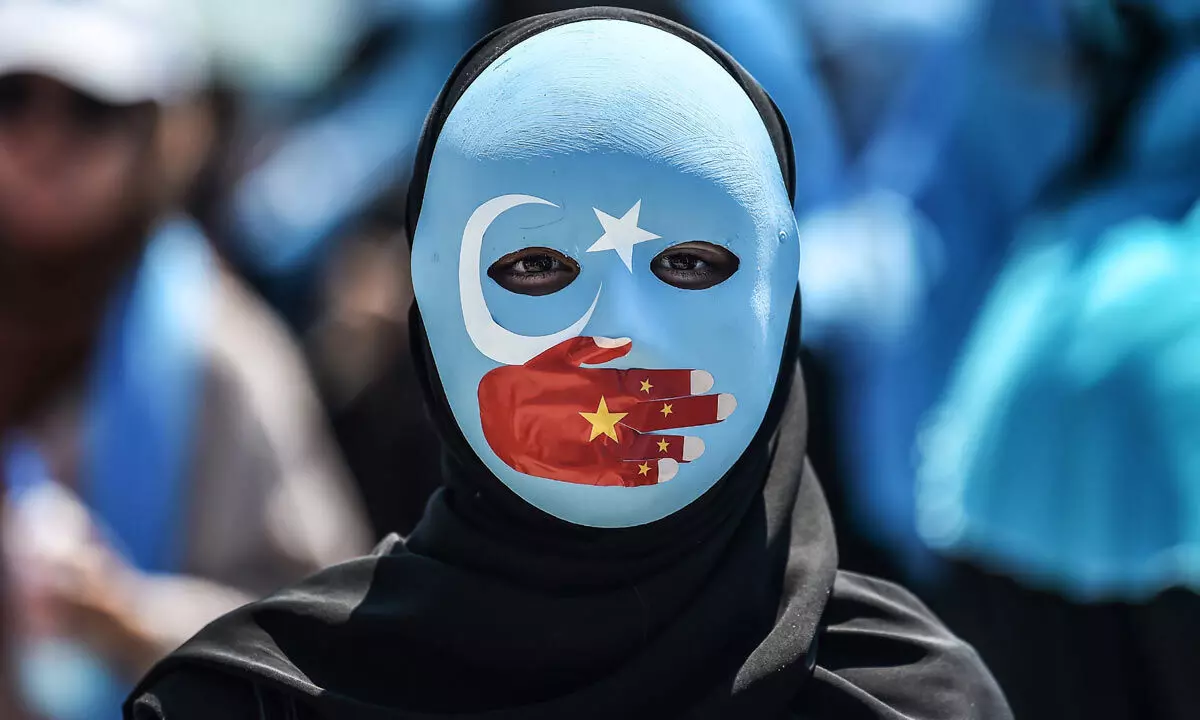Time to confront China on Uyghurs' plight

Representational image
The Office of the High Commissioner for Human Rights (OHCHR) describes specific medical concerns about the treatment of Uyghurs in Xinjiang, especially between 2017 and 2019.
The Office of the High Commissioner for Human Rights (OHCHR) describes specific medical concerns about the treatment of Uyghurs in Xinjiang, especially between 2017 and 2019. Testimonies were gathered that pointed to blood tests, injections, and medications being forced on Uyghurs without their consent. Episodes of sexual violence, including the rape of mainly women, "invasive gynaecological examinations," and sexual humiliation were described.
Investigations revealed that psychological torture produced mental suffering by creating an atmosphere of fear, stress, and anxiety. Serious concerns about widespread violations to the right to the highest attainable standard of health, lack of freedom to refuse non-consensual medical treatment, lack of access to clean water and sanitation, and lack of an adequate supply of safe food are also there. Reproductive rights were also allegedly violated. There was a sharp rise in sterilisations in 2017 and 2018—243 per 100 000 inhabitants in Xinjiang, compared with 32 per 100 000 for China overall.
Forced sterilisations, forced placement of intrauterine devices, and forced abortions may have contributed to a rapid fall in the birth rate in Xinjiang. Although the OHCHR notes that it is unable to draw firm conclusions about the precise nature of some of these abuses, it comments that: "These first-hand accounts, although limited in number, are considered credible." Sadly, the world is turning a blind eye to the atrocities and violations of China in Xinjiang. The report goes beyond medical abuse—the referral of "a substantial proportion" of the Uyghur population to Vocational Education and Training Centres, where beatings, sleep deprivation, and starvation took place; restrictions on cultural, linguistic, and religious freedoms; intensive surveillance and control, with restrictions on movements; and enforced disappearances, family separations, denial of family contacts, and reprisals should individuals try to reach out to family members abroad.
The OHCHR concludes that, based on interviews with people who had first-hand knowledge of the conditions for Uyghurs in Xinjiang, "serious human rights violations have been committed in XUAR." Situation is so alarming that some quarters are demanding the acts as genocide against the Muslims. There is nothing wrong if it is called crimes against humanity. In addition these are being perpetrated during the peace times and not during any war. The Chinese authorities, as usual, argued that the alleged evidence was "groundless" and based on "disinformation and lies." They said that the statements quoted are merely "smears and slanders". Instead, they suggested that China "is committed to promoting international human rights."
The work the government has undertaken in Xinjiang has been focused only on counterterrorism and deradicalisation. There has been no mass violation of human rights, they said.
Despite the source of this report being the UN OHCHR, WHO has been silent. In a media briefing on the same day as the report's publication, WHO Director-General Tedros Adhanom Ghebreyesus spoke about the humanitarian catastrophe in Pakistan, COVID-19, and monkeypox. On the alleged atrocities perpetrated against Uyghurs, not a word. Nor the following day, giving a keynote speech at the Health20 Summit in which he praised countries, including China, for their commitment to multilateralism, partnership, and equity. Why the apathy? What is the reason for the silence? Is the WHO afraid of China? Yes, by all means. It is high time that the world wakes up to reality and put an end to the fear, perhaps.

